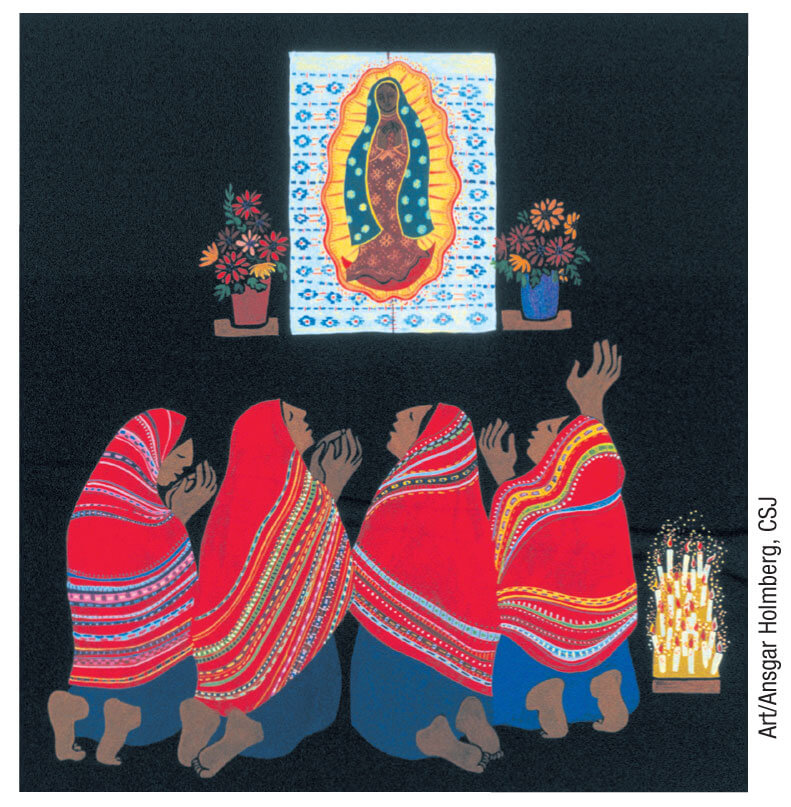
Many Israelites in exile didn’t want to come home. Like second- and third-generation immigrants whose lives and careers are in the U.S., the second- and third-generation exiles had made their lives and careers in Babylon, working at metal crafts or in the foreign service as translators.
When Cyrus, king of the Persian empire (modern Iran), begins to attack and slowly conquer the Babylonians around 545 B.C., Second Isaiah sees God acting through Cyrus to set the Israelites free to be a people again.
Second Isaiah imagines a new exodus for the people, a second journey to the promised land with God leading them home through the desert. The prophet creates a vision to motivate people to leave their careers and jobs to journey back to their ruined city and land. Few of these second- and third-generation Israelites had reason to set out for a land they had never seen.
The vision of preparing a road home for God belongs not just to Second Isaiah. This Sunday’s first reading comes from Baruch, a book written in the 2nd or 3rd century B.C. Baruch uses the same imagery of the exiles’ homecoming to call the people for whom he wrote to count on God.
Arise and rejoice, Jerusalem
Arise, Jerusalem, take off your robe
of mourning and misery; put on
the splendor of God’s glory forever.
Up, Jerusalem,
stand upon the heights;
look to the east
and see your children
gathered from the east and the west
at the word of the Holy One,
rejoicing that they are
remembered by God.
For God has commanded that
every lofty mountain be made low, and that the age-old depths
and gorges be filled to level ground, that Israel may advance
secure in the glory of God.
The forests and every fragrant tree have overshadowed Israel
at God’s command;
for God is leading Israel in joy
by the light of God’s own glory
with mercy and justice for company.
Baruch 5.1,5,7-9
God’s homecoming is an announcement and a call. The prophetic voices of Second Isaiah, Baruch, and John the Baptist herald God’s homecoming, announce God at work in the world. But their news is at the same time a call to repentance, to make room for God, to smooth, straighten, and level the way. God finds a home in Mary’s yes to come among us. God must find a home in our faith and practice of justice and peace.
“Home is where one starts from,” T. S. Eliot writes in his poem “East Coker,” the second of his Four Quartets. In the last of the four poems, “Little Gidding,” Eliot returns to the theme of home. And the end of all our exploring Will be to arrive where we started And know the place for the first time.
- Where has your exploring taken you? What places and people do you recognize as home to you?
- What that has been home to you do you need to reclaim? To leave behind?
- What justice can we practice to reveal God’s presence among us?
